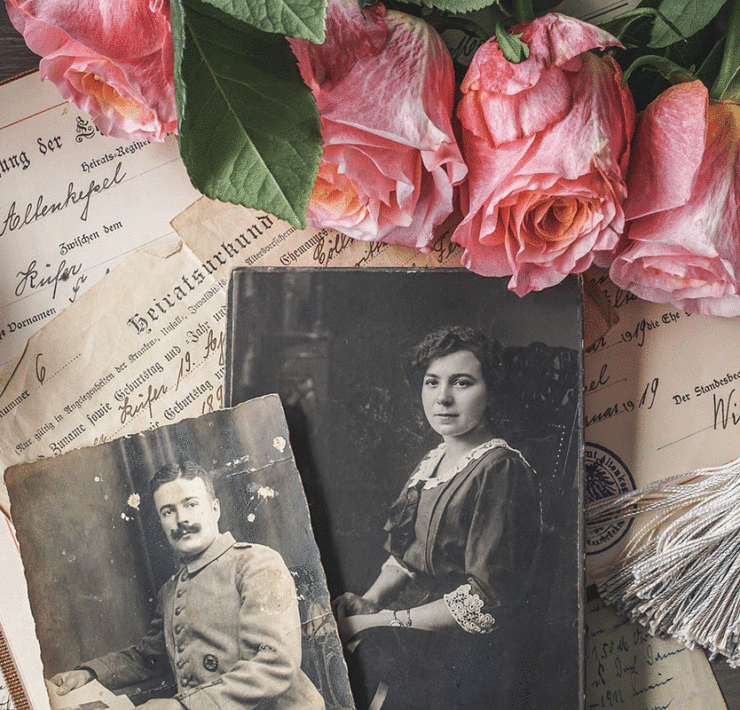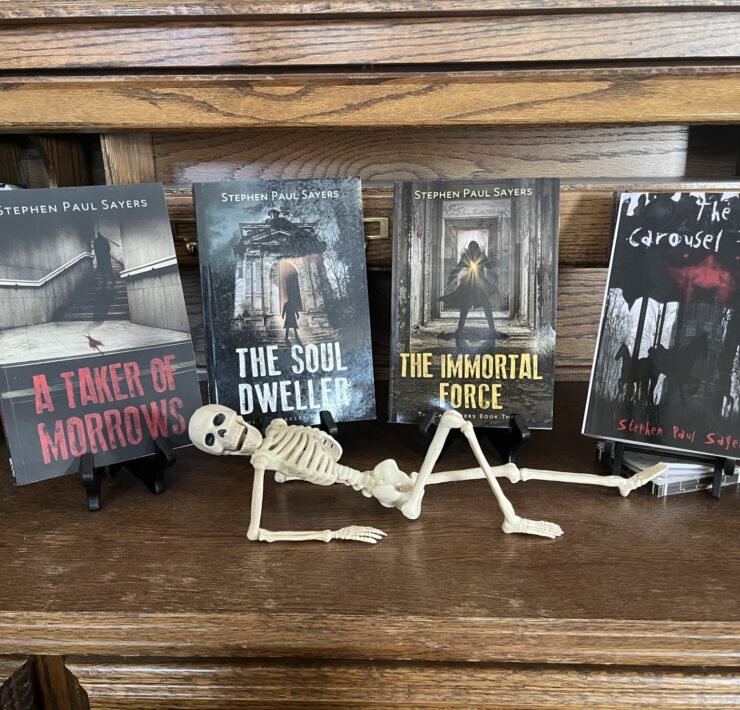Help Is Here

How to find resources for dealing with mental health during the pandemic.
Let’s be honest: dealing with mental health was hard enough without throwing an international pandemic into the mix.
Whether you are quarantining or social distancing, staying safe these days has come with an unprecedented amount of stress, loneliness, and disappointment. Everyone has felt it to some degree, but for those struggling with mental health, the past few months have been nothing short of world-shattering.
Maybe the isolation of staying at home has brought on depression, or maybe this is the first time you’ve felt anxiety and you’re not sure how to handle it. It may seem like the traditional coping resources to help you are no longer available, and that amid the crazy COVID-19 season, you’ve been left behind.
You’re not the only one feeling like this. Megan Steen, the director for outpatient services at Burrell Behavioral Health, says that there has been an increase in stress, depression, and anxiety due to juggling work and personal lives at home amid a traumatic time.
However, there are still plenty of ways to find help or relieve stress if you know where to look. Megan and Heidi Blackstun, a therapist and licensed clinical social worker, give us some advice on different resources available right now so that you can start finding what works for you.
Lean on a Support System
First and foremost, it’s important to know that you’re not alone. Not only are there people going through something similar to you, but there are people in your life who can help support you on your journey to get help.
“Social distancing doesn’t mean social isolation,” Megan says. “It’s so important to stay connected with others because our brains are hardwired for connection with other humans, even though that connection may look different right now.”
Especially for those who are more extroverted and social, finding creative ways to meet with friends and family is vital to feeling supported. Heidi says that, rather than meeting at coffee shops or going shopping, people can still have quality time together by going on walks or meeting at a distance.
“Things do look different, and sometimes we just need other individuals to help support us in coming up with those plans for what may help us moving forward,” Megan says.
Practice Mindfulness
Though meditating may not sound like your thing, Heidi and Megan both agree that practicing mindfulness techniques can be stress relieving and helpful to process how you’re doing.
“Once you allow yourself to be present with how you feel, then you can figure out how you’re going to get through it,” Heidi says. “And once you get through it, you build more confidence that you can get through more difficult times.”
If you don’t know where to begin, Heidi recommends finding guided meditation techniques and practicing mindfulness about 10 minutes a day, which is usually enough time to gain some relief. What’s important is making a routine out of it so that you become more practiced at being aware as time goes on.
“Look at it as the time that you can give to yourself to relax and learn to be more aware of what’s going on,” she says. “Maybe your body’s reacting to something that you have absolutely no idea that your mind is dealing with.”
Seek a Different Reality
Obviously you can’t ditch our reality for a better one (though wouldn’t that be nice if we could). However, one way you can try to be more mindful is through Healium, a Columbia-based company that created a virtual and augmented reality app that’s designed to calm people down.
The Healium app uses augmented reality, taking something virtual and putting it in the real world using beautiful imagery. People can watch butterflies and fireflies fly around the room and can even “travel” to the beach. If you add on a wearable like an Apple watch or a brain-sensing headband, then your brain waves and heart rate control the images. “The calmer your mind, the more things happen with the experience,” Wendy Moore, the chief operating officer and data protection officer of Healium, explains.
In three peer-reviewed journals, Healium has been shown to reduce moderate anxiety by a third in as little as four minutes by reducing activity in the area of the brain that produces stress and increasing activity in the area of the brain that sends out positivity.
It can also help with feelings of being cooped up in your home. “The typical coping mechanisms that we all do — interacting with friends, family — when that was taken away, we saw a big surge in neediness for virtual travel,” Wendy says. “You can sit on the beach with Healium as a nice getaway when you can’t actually get away.”
Try Stress-Relieving Activities
Hiking, walking, and taking advantage of the nice weather are simple things, but the simple things can often be a stabilizing, healthy force for your mind. Staying active and finding hobbies that help you cope are great ways to relieve stress and take your focus off of negative things.
If you get the winter blues when the weather gets cold and cloudy, plan for activities you can do inside. “Knitting, painting, redoing the wallpaper, or some sort of project you can accomplish during those months that you feel kind of trapped inside are good things to think about,” Heidi says.
Find Resources Online
There are also good resources to discover on the web. Whether you like podcasts, reading, or watching videos, there are different places online that can inspire you to think more positively.
“I think there can be some really good podcasts that people can listen to and maybe start to adopt their own philosophies about things,” Heidi says. “Maybe search for different topics that interest them.”
One podcast Heidi recommends is called the Happiness Lab, which discusses scientific research and inspiring stories to help redefine how we view happiness. Megan also offered people to try out Burrell’s “Be Well Community” on Facebook Live, which covers a different topic daily. “There’s something for everyone on it,” Megan says.
Talk It Out
Despite all the resources already given, there is probably nothing that can help more than talking to a trained therapist or counselor. And yes, they are still meeting with people and taking new clients. It just might be over Zoom.
“People need to know that we’re doing the same thing, it’s just a different location and different platform,” Heidi says. “We’re still providing good care with alternative ways.”
Participating in therapy remotely allows you to discuss what you’re going through with someone who knows best how to help, and it can help you feel supported and heard when it feels like people are far away.
Though looking for a therapist can feel intimidating, it’s more accessible than you might think. Heidi says word of mouth and asking around is a great way to find therapists that have worked well for others you know. If that doesn’t work, then you can ask your physician, talk to a student health representative, or even fire off a simple Google search.
If you need immediate help, Burrell Behavioral Health has a 24-hour crisis number you can utilize at any time.
Find What Works for You
Ultimately, everyone is different, and not everything is going to work for everyone. “My self-care may be completely different than your self-care,” Megan says. “But make sure that in our 24/7 culture right now, that you’re carving out time to just really breathe and do what’s needed to refill your cup.”
It might be a process to figure out what you like and what you don’t, but it’s something that will be worth it over time. Being creative and trying out things you normally wouldn’t do might surprise you. And if you are in the beginning stages of that process, don’t beat yourself up. It’s normal and natural to be struggling right now, and figuring it out won’t happen in a blink of an eye.
“You know, I think that part of being a human is having to adapt all the time,” Megan says. “But especially the rate at which we’re having to adapt right now feels overwhelming, and we have to be open to supporting one another through that and just having grace with ourselves and other people.”
Resources
Heidi A. Blackstun
Specialties: anxiety, depression, relationship/couples support, cognitive behavioral therapy, work-life balance, family systems theory, mindfulness, assertiveness, bereavement/grief, stress management, communication skills
(573) 768-8628
2012 Cherry Hill Dr., Ste 101
Burrell Behavioral Health
Specialty: Highly trained psychiatrists, outpatient therapy clinicians and case-managers provide a full range of in person, and telehealth services across the continuum of behavioral health care from children to senior adults.
Walk-in appointments:
8 a.m. to 5 p.m.
27/4 Emergency Hotline:
(800) 395-2132
(573) 777-8300
3401 Berrywood Drive
(Walk-ins are provided at this location.)
Maureen Hayes
Anxiety and Depression Clinic of Columbia
Specialties: depression, anxiety, self-esteem
(573) 245-8035
2012 Cherry Hill Dr., Ste 101
Dr. Laura Brenner
Specialty: clinical psychology
(573) 239-5563
28 N Eighth St., Ste 300
Ashley Birkead
Anxiety & Depression Clinic of Columbia
Specialties: anxiety disorders, depression, bipolar disorder, women’s issues, postpartum, infertility, relationship issues, divorce counseling
(573) 261-6096
2600 Forum Blvd., Ste. G








